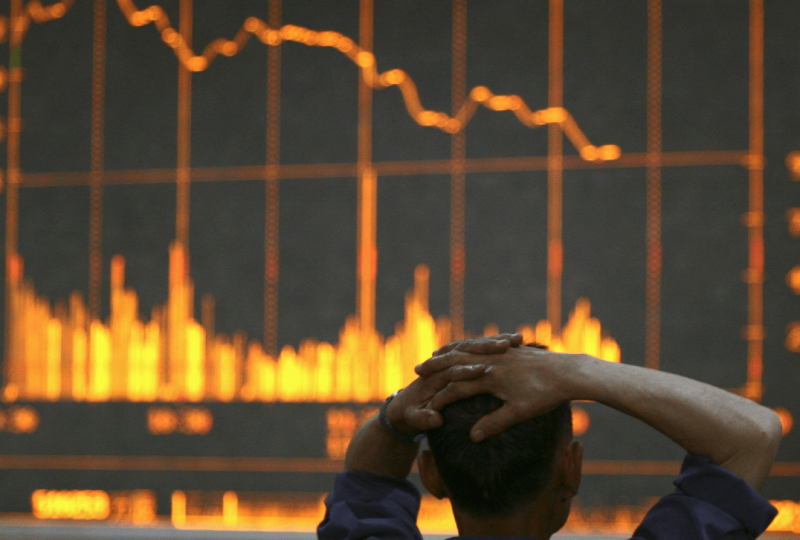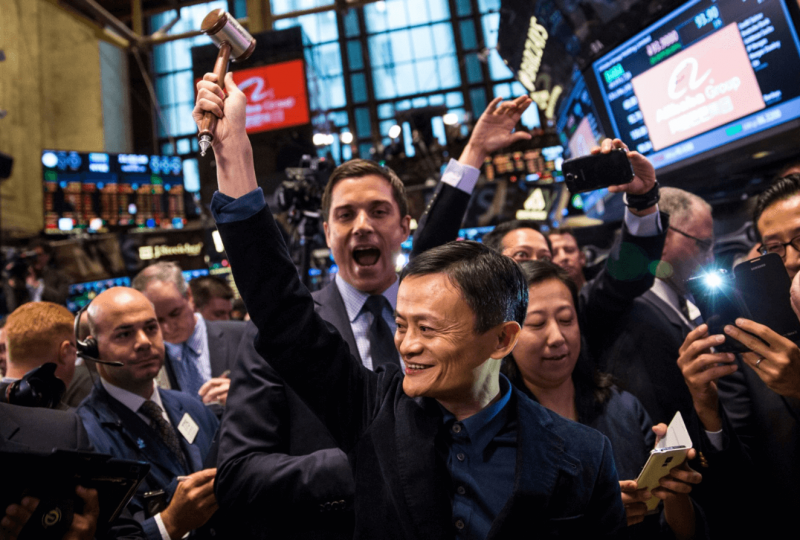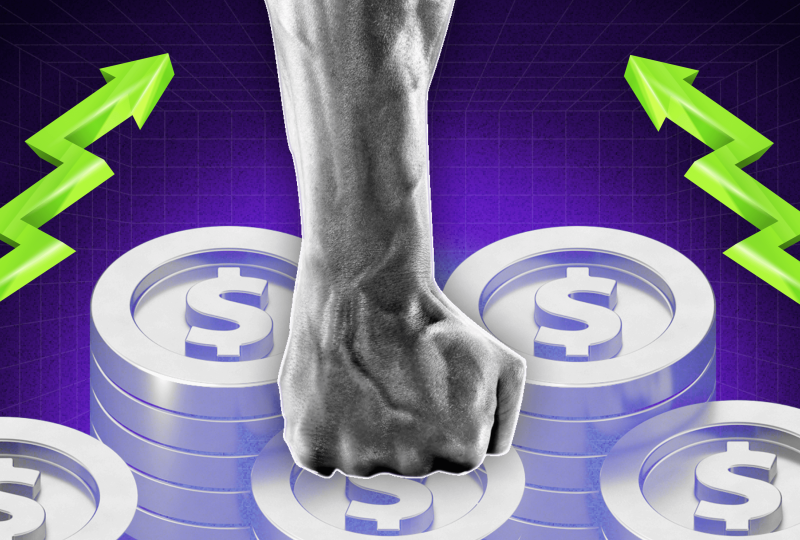Dow Fell, Oil And Gold Surged – And What Else Happened In The Stock Market Today
Mar 07, 2022

Monday's stock market plunged, with the Dow Jones Industrial Average falling into correction territory. Oil prices continued to soar amid rumors that Western nations are weighing the possibility of imposing an embargo on Russian imported oil.
The Dow Jones Industrial Average lost 797 points, or 2.4%, in afternoon trade. The Dow ended correction territory — defined as a 10% decline — for the first time since February 27, 2020. The S&P 500 fell 3%, while the Nasdaq Composite fell 3.6%. Both of those indices are in the correction zone, while the Nasdaq has entered the bear market territory, which is characterized as a 20% decline.
WTI crude oil prices increased by more than 3% to a little over $119 a barrel, about 60% more than a year ago, but down from a high of $130.50 on Sunday night. That was the biggest intraday level since 2008, according to Bloomberg. Markets are afraid that if and when Western nations put sanctions on Russian oil in response to Russia's invasion of Ukraine, there will be less oil accessible.
On Sunday night, news circulated that the United States and its European allies were considering an embargo on Russian oil imports. According to US Secretary of State Antony Blinken, the US is considering the option. Nancy Pelosi, the Speaker of the United States House of Representatives, also stated that Congress is exploring measures that would prohibit the purchase of Russian oil.
"US equities fell as increasing commodity prices added to concerns that economic growth prospects may suffer significantly as Ukraine uncertainty remains," Edward Moya, senior market analyst at Oanda, commented.
The primary concern for the financial markets is that consistently increasing oil prices will exacerbate already-heavy inflation faced by consumers. Not only may this result in reduced spending, but it would also restrict profit margins for many businesses.
The West is not limited to sanctioning oil. Russia's economic output is heavily reliant on commodity production, and sanctions on non-oil commodities would be damaging to the country's economy. Wheat prices have already increased over 70% year to date.
Rising prices further complicate the Federal Reserve's mission. The сentral bank intends to combat inflation this year by hiking interest rates multiple times. Increased inflation might push it much higher—and more rate hikes could hinder economic development. However, if the Federal Reserve is less aggressive, this may not be enough to contain inflation.
Next Monday, the Federal Reserve will announce its interest rate decision. At the moment, markets anticipate that rates will be lifted by a quarter of a percentage point, with little prospect of the half-point increase anticipated earlier this year. Investors will be on the lookout for signs regarding the pace of rate increases in the months ahead.
This Thursday, before the rate rise announcements, inflation data will be released. Economists expect the consumer price index to have increased 7.8% year on year in February, up from 7.5% in the preceding month.
With political turmoil between the West and Russia escalating, Russian President Vladimir Putin has now authorized his authorities and businesses to pay creditors from hostile countries in rubles to avert a default.
Russia has already faced sanctions imposed on the country's financial sector. At the moment, Russian banks are not members of the Swift payment infrastructure, which enables more smooth financial transactions across nations. This might imply that Russian banks are unable to make timely payments to international partners, putting European banks and other companies under strain.
While these threats are constant, one action deserves special attention. To be sure, the equity market fell Monday, but there may be a ceiling on stock prices. At 4,200, the S&P 500 index finished only a hair below its previous year's low of 4,225 set in late February.
The main indices had almost entirely recovered in the morning, but when peace negotiations between Russia and Ukraine collapsed, the market fell further. "Stocks are approaching their day's lows after peace negotiations concluded without much progress," senior market analyst Michael Reinking noted.
By and large, "there is an enormous amount of dip-buying," according to Kevin Simpson, CEO of Capital Wealth Planning. "We are constantly expanding our positions."
This is partly because it is still unclear how central banks will react to recent inflationary pressures and the extent to which economic growth will slow. Thus, when equities fall enough, opportunistic market investors increase their purchases.
Investors are now watching to ensure that the S&P 500 does not start lower on Tuesday. If no buyers appear at present prices, how low the index may go is anyone's estimate.
Consistent with such unpredictability, it is doubtful that the equity market will ever approach its historic high. Citigroup analysts dropped their year-end price prediction for the S&P 500 to 4,700 from 5,100, a hair below the index's early January all-time high. Citi analysts maintained their cumulative earnings projection for the index, but reduced their expected multiple, or value, on those profits. Investors often pay less per dollar of profit to buy equities when the chance of profits being lower than projected is greater. "We anticipate that a larger geopolitical risk premium would have a damaging effect on wider market projected values," Citi analyst Scott Chronert said.
Additionally, Evrecore's analysts reduced their price target to 4,800 from 5,100.
Overseas, Frankfurt's DAX fell 2%, while Tokyo's Nikkei 225 fell 2.9%.
Gold prices continued to rise as investors sought safe havens despite falls in equities and cryptos. The precious metal's futures increased by 1.8% and had previously crossed $2,000 an ounce, the highest level since mid-2020. Closing over $2,000 would be just the second time in at least 50 years that gold has crossed that level.




